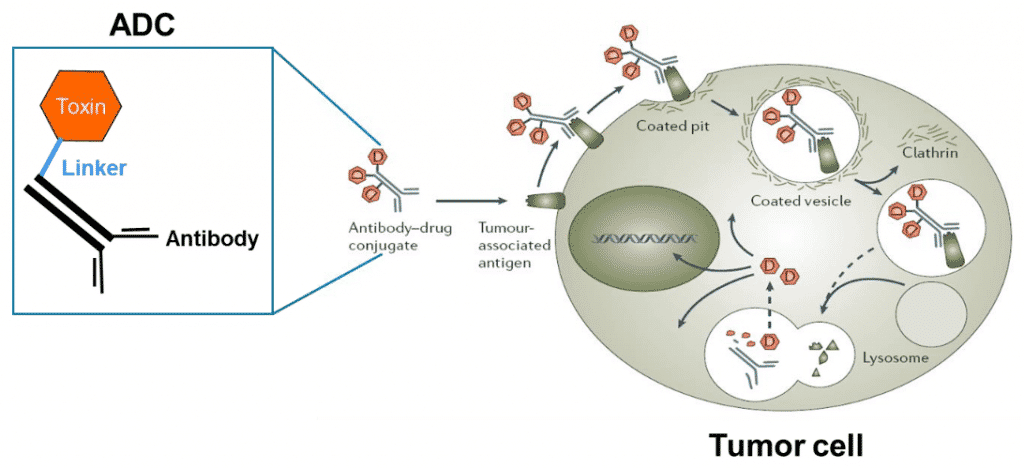German Biotech Scoops Up €34M Investment in Cancer Technology
Heidelberg Pharma has now successfully concluded the corporate action adopted on 3 November by placing the maximum possible number of new shares and issuing convertible bonds Gross issue proceeds of around € 34.4 million.
Heidelberg Pharma AG will receive total gross proceeds of EUR 34,427,274 (including contribution in kind) from the capital increase, which will be used to finance the ATAC development programs.
The biotech, formerly Wilex, is developing drugs for cancer and autoimmune diseases, with the hope that the addition of Amanitin to antibody-drug conjugate (ADC) technology could produce highly effective therapeutics. The privately owned company’s sale of shares and bonds was oversubscribed and the money raised will help to progress its pipeline.
While a magic bullet to cure cancer does not exist, ADCs might at least be an effective tool to fight it. ADCs are highly efficient and, with adequate payloads, capable not only of overcoming tumor resistance but also killing dorma
nt tumor cells that cause metastasis and tumor relapse. Each ADC is something completely individual, regarding its target, indication, and chemistry: ADCs could theoretically be engineered to target just about any biological tumor target as long as it can be reached by internalizing antibodies.Moreover, ADCs stand to be easy to administer via infusion compared to CAR-T therapies, which entail a very complex procedure of blood withdrawal to extract T-cells, follow by genetic modification and amplification of these cells.
ADCs aren’t really an immunotherapy in the common understanding of the term these days. They’re more of a guided missile, where the antibody is the guiding system of a cytotoxic payload. In an ADC, a toxin piggybacks on an antibody as it homes in on its target receptor protein. The antibody sticks to the cell surface and is then internalized, payload and all, so the toxin can be released inside the cell to induce apoptosis.
The cytotoxic therapy on its own is simply chemotherapy, which carries serious side effects as it indiscriminately kills sick and healthy cells. This toxicity could theoretically be avoided by directing the molecules exclusively to the cancer cells; while medicinal chemistry aims to solve this problem by altering the molecule, the intrinsic specificity of antibodies could also provide an answer. This is very much a way to marry the next generation of highly potent chemical drugs and the new generation of biologicals
Dr. Jan Schmidt-Brand, Spokesman of the Board of Management and CFO of Heidelberg Pharma AG, commented: “We are pleased that we were able to successfully conclude this capital measure and we would like to thank our shareholders for their trust and their support In particular, we plan to launch the clinical development of our development candidate HDP-101 and anticipate the first efficacy recommendations in patients by extending the funding reach of Heidelberg Pharma by 2020, we are fully committed to further development focus on our HDP-101 project and technology fundamentals. “































